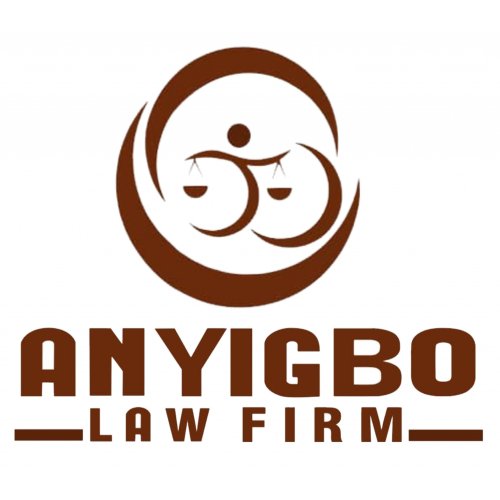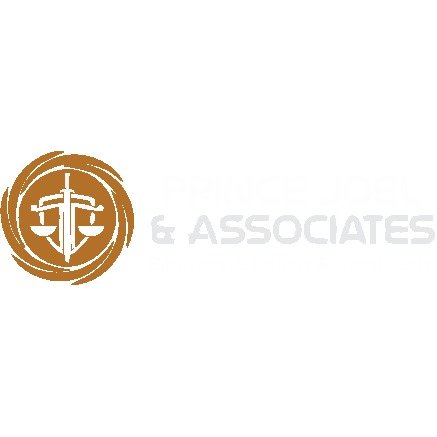Best Wrongful Termination Lawyers in Onitsha
Share your needs with us, get contacted by law firms.
Free. Takes 2 min.
List of the best lawyers in Onitsha, Nigeria
About Wrongful Termination Law in Onitsha, Nigeria
Wrongful termination refers to the illegal or unjustifiable termination of an employment contract by an employer in Onitsha, Nigeria. It occurs when an employee is dismissed without just cause or without following the proper legal procedures. Wrongful termination laws aim to protect the rights of employees and ensure fair treatment in the workplace.
Why You May Need a Lawyer
You may need a lawyer in cases of wrongful termination to protect your rights and seek legal remedies. Some common situations that may require legal help include:
- Termination based on discrimination (gender, religion, ethnicity, etc.)
- Retaliatory termination for whistle-blowing or reporting illegal activities
- Termination without proper notice or severance pay
- Breach of employment contract
Local Laws Overview
Under Nigerian law, wrongful termination is regulated by various statutes, including the Nigerian Labor Act and the Labor Law of Anambra State. Key aspects of local laws that are relevant to wrongful termination in Onitsha, Nigeria include:
- Prohibition of employment discrimination based on gender, religion, ethnicity, or disability
- Requirement for employers to provide proper notice or compensation in case of termination
- Procedures for termination outlined in employment contracts or collective bargaining agreements
- Right to file a complaint with the National Industrial Court or relevant authorities
Frequently Asked Questions
1. Can I sue my employer for wrongful termination in Onitsha?
Yes, you can sue your employer for wrongful termination in Onitsha if you believe you were unfairly dismissed without just cause or due process. However, it is advisable to consult with a lawyer to understand the specifics of your case and determine the best course of action.
2. What compensation can I receive if I win a wrongful termination lawsuit?
If you win a wrongful termination lawsuit in Onitsha, you may be entitled to various forms of compensation, including reinstatement, back pay, front pay, damages for emotional distress, and legal costs. The specific compensation depends on the circumstances of your case.
3. What is the time limit for filing a wrongful termination claim in Onitsha?
The time limit for filing a wrongful termination claim in Onitsha is generally within three months from the date of termination. It is crucial to consult with a lawyer promptly to ensure you meet all the necessary deadlines and requirements.
4. Can I settle a wrongful termination case out of court?
Yes, it is possible to settle a wrongful termination case out of court through negotiations or mediation. A lawyer can assist you in exploring settlement options and ensuring that any agreement reached is fair and in your best interests.
5. How can I gather evidence to support my wrongful termination claim?
To gather evidence for your wrongful termination claim, you can collect documentation such as employment contracts, termination letters, emails, witness statements, and any other relevant records. Additionally, consult with a lawyer who can guide you on the specific evidence needed to strengthen your case.
Additional Resources
If you are seeking additional resources or organizations related to wrongful termination in Onitsha, Nigeria, consider referring to:
- The Nigerian Labor Act
- The National Industrial Court of Nigeria
- The Nigerian Bar Association (NBA)
- The Ministry of Labor and Productivity, Onitsha
Next Steps
If you require legal assistance regarding a wrongful termination issue in Onitsha, Nigeria, the following steps are recommended:
- Gather all relevant documents and evidence related to your employment and termination.
- Research and consult with reputable lawyers specializing in employment law or wrongful termination.
- Arrange a consultation with a lawyer to discuss the details of your case and determine the best legal course of action.
- Follow the advice of your lawyer, who will guide you through the legal process and help protect your rights.
- Consider alternative dispute resolution methods, such as negotiation or mediation, to resolve the matter.
- If necessary, file a formal complaint with the National Industrial Court or other relevant authorities.
Lawzana helps you find the best lawyers and law firms in Onitsha through a curated and pre-screened list of qualified legal professionals. Our platform offers rankings and detailed profiles of attorneys and law firms, allowing you to compare based on practice areas, including Wrongful Termination, experience, and client feedback.
Each profile includes a description of the firm's areas of practice, client reviews, team members and partners, year of establishment, spoken languages, office locations, contact information, social media presence, and any published articles or resources. Most firms on our platform speak English and are experienced in both local and international legal matters.
Get a quote from top-rated law firms in Onitsha, Nigeria — quickly, securely, and without unnecessary hassle.
Disclaimer:
The information provided on this page is for general informational purposes only and does not constitute legal advice. While we strive to ensure the accuracy and relevance of the content, legal information may change over time, and interpretations of the law can vary. You should always consult with a qualified legal professional for advice specific to your situation.
We disclaim all liability for actions taken or not taken based on the content of this page. If you believe any information is incorrect or outdated, please contact us, and we will review and update it where appropriate.











